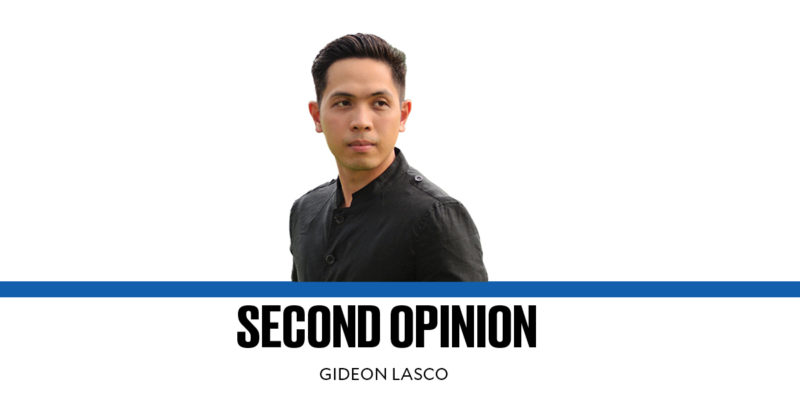In recent years, there has been a resurgence of scholarly and creative works centered around the dark period of martial law in the Philippines. These works aim to counter the golden age myths perpetuated during past elections and to serve as a reminder of the horrors that took place, from rampant corruption to unimaginable violence.
Cinema has been a powerful platform for these works, with notable films such as Lavrente “Lav” Diaz’s “Ang Panahon ng Halimaw,” Dakip “Kip” Oebanda’s “Liway,” Mike de Leon’s “Citizen Jake,” Lauren Greenfield’s documentary “The Kingmaker,” Vincent Tañada’s “Katips,” and Joel Lamangan’s “Oras de Peligro.” There has also been renewed interest in older works like Ramona Diaz’s “Imelda” and the rock musical “Here Lies Love,” currently running on Broadway.
Not only in cinema, but we’ve also seen the rise of remarkable novels that delve into martial law and its aftermath. Examples include Gina Apostol’s “Insurrecto,” Glenn Diaz’s “Yñiga,” and Elaine Castillo’s “America is Not the Heart,” all offering unique perspectives on this dark period in Philippine history. These novels have captivated readers, including myself, with their thought-provoking narratives.
In the realm of academic scholarship and writing, commendable works have emerged, such as “The Marcos Era: A Reader” edited by Leia Anastacio and Patricio Abinales, “Marcos Lies” by Joel Ariate Jr., Miguel Paolo Reyes, and Larah Vinda del Mundo, and “Martial Law in the Philippines: Lessons and Legacies, 1972-2022” edited by Edilberto de Jesus and Ivyrose Baysic. JC Punongbayan’s book, “False Nostalgia,” is also worthy of commendation. As someone who fully supports these efforts, I have also contributed to this discourse both in this space and through scholarly work (see my study on Ferdinand Marcos Sr.’s use of drugs as a populist tool to justify dictatorship).
However, it is crucial to be mindful of two premises that influence the reception and creation of these works. These premises can significantly impact not only how martial law is understood but also how we perceive our present and future political landscape.
The first premise, as I elaborated on in my recent piece titled “Beyond the Disinformation Narrative,” is the belief that people’s views can be easily corrected and changed by debunking fake news and educating them about the truth. Disinformation cannot be simply debunked because it resonates with people’s experiences. Fact-checking and historical truth-telling often end up preaching to the choir. The promise of cheap rice, for example, can be easily debunked, but its ability to convey a concern for agriculture is not so easily dismissed.
The second premise is the tendency to compartmentalize the Marcos years and view other periods as either good (e.g., Edsa) or unworthy of study and portrayal (e.g., the Quirino administration). While martial law was indeed an extraordinary period characterized by the subversion of democracy and human rights, there must have been some continuity of violence from the American to the Japanese occupation periods. Similarly, riding-in-tandem attacks did not originate during the Duterte years. Exceptionalism towards martial law can lead to a form of “false nostalgia” if it prevents us from acknowledging both the good and bad that occurred during those years, as well as the subsequent events.
This brings me to my main point: any form of nostalgia for the past can lead to misguided thinking and, at worst, bad politics. Even the recent election season is already becoming a subject of nostalgia, with many considering the years that followed as lost. While these sentiments are valid given the distressing news today, it is crucial that they do not preclude critical self-reflection. We must not only ponder what could have been but also what actions could have been taken.
This is not a call to simply move on; as Hannah Arendt said, “Let truth be told though the world may perish.” Challenging the above premises should not divert attention from the vital task of studying the past, supporting those engaged in this work, and standing against attempts to revise history, such as the proposal to erase the term “Diktadurang Marcos” from textbooks. Equally important are the creative works that captivate and inform, shedding light on past injustices and sparking empathy and reflection.
However, it is crucial to recognize that nostalgia is inherently subjective and cannot be proven or disproven. Therefore, we should not center our politics solely on nostalgia or base elections on whose narrative is more factual. Rather, we should strive for a forward-looking vision that appeals to people’s aspirations while remaining historically and morally sound.
Your subscription could not be saved. Please try again.
Denial of responsibility! Vigour Times is an automatic aggregator of Global media. In each content, the hyperlink to the primary source is specified. All trademarks belong to their rightful owners, and all materials to their authors. For any complaint, please reach us at – [email protected]. We will take necessary action within 24 hours.


